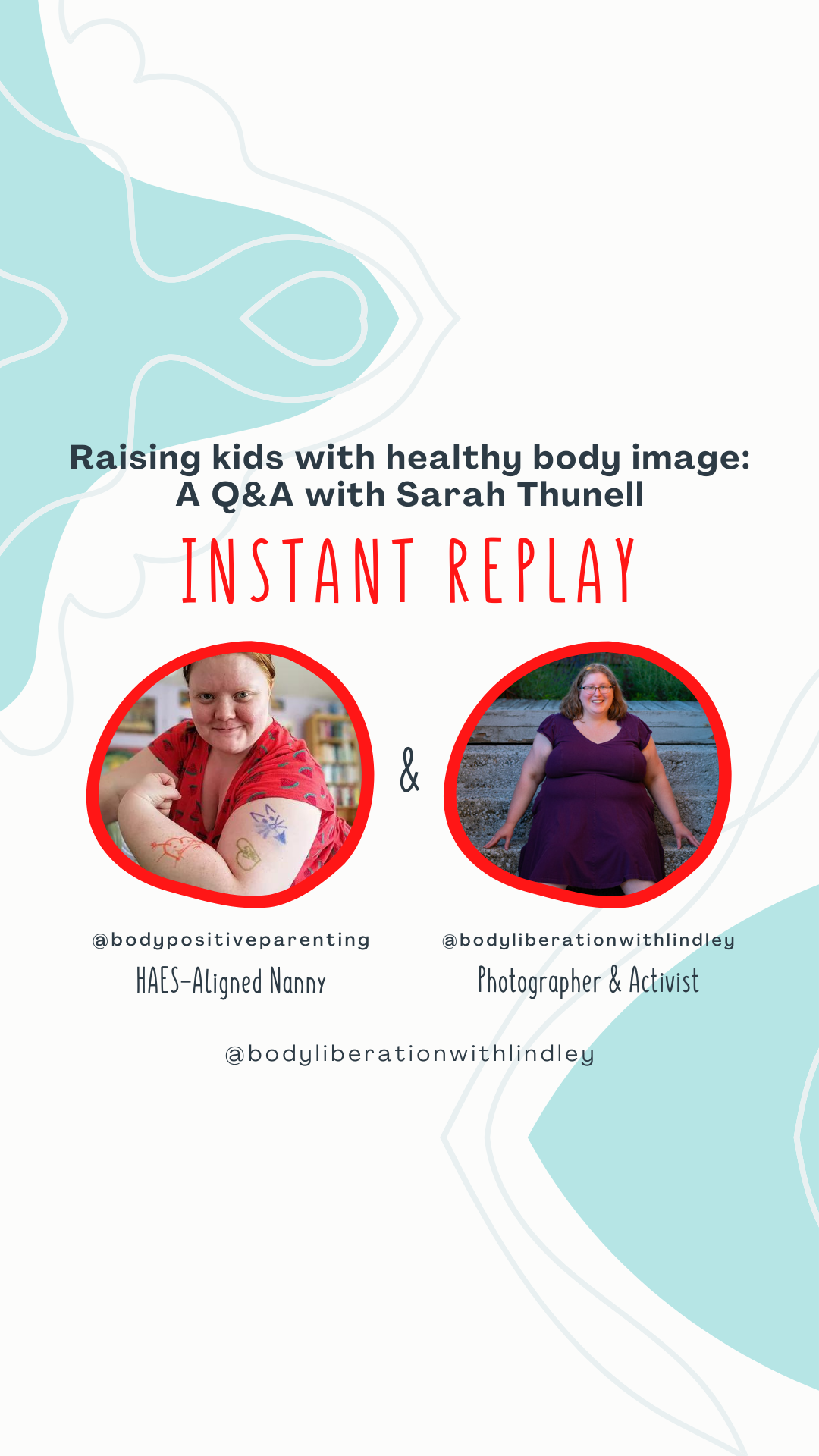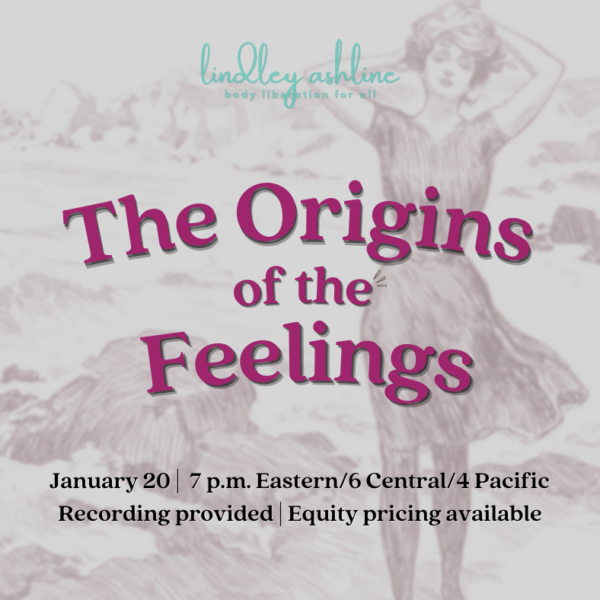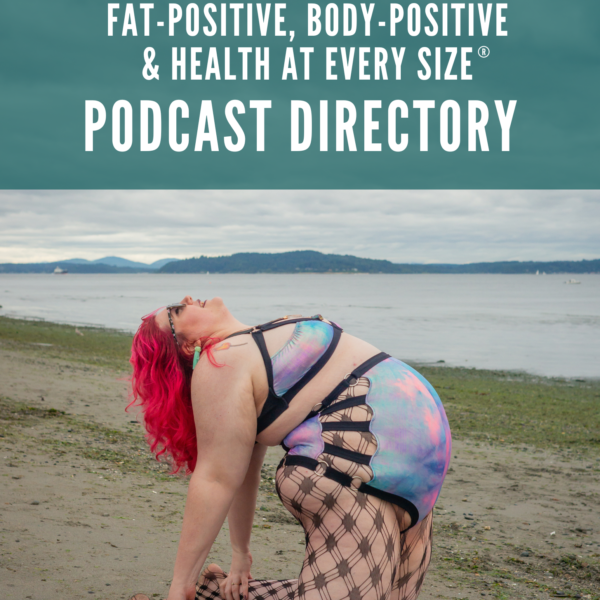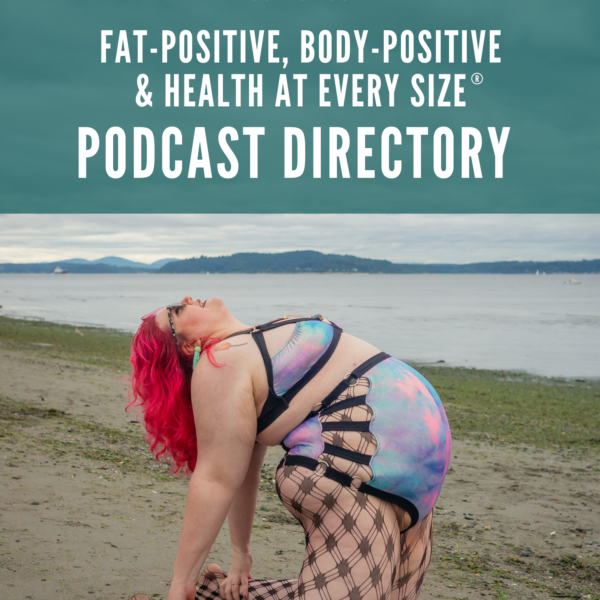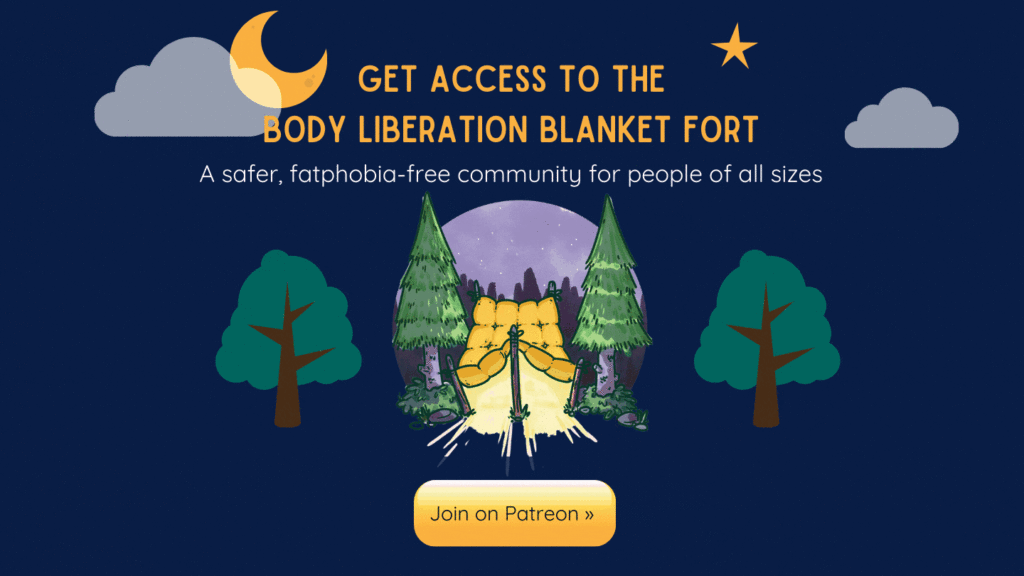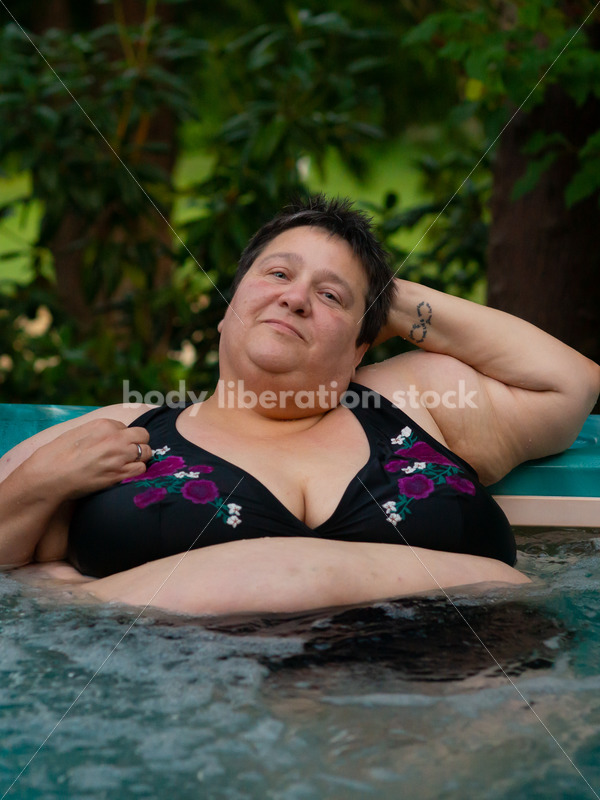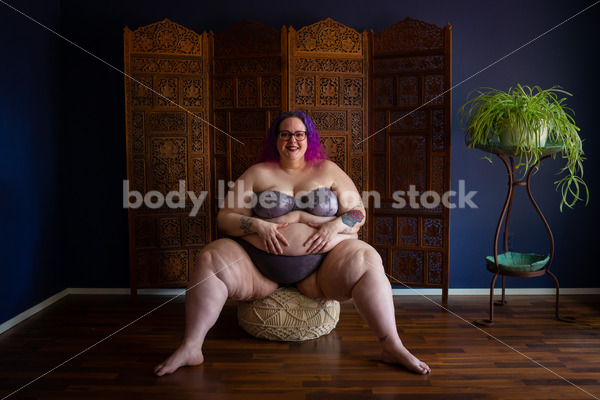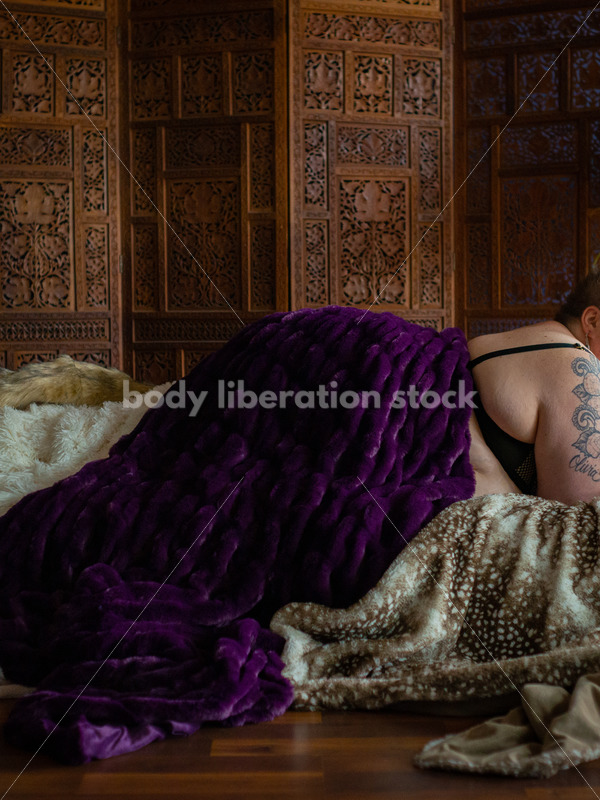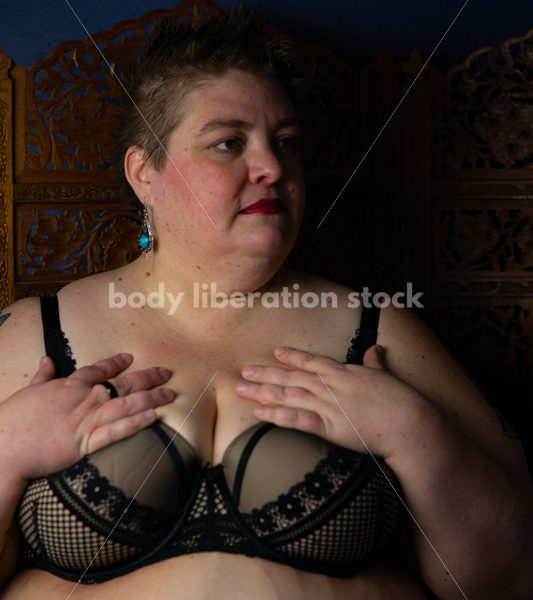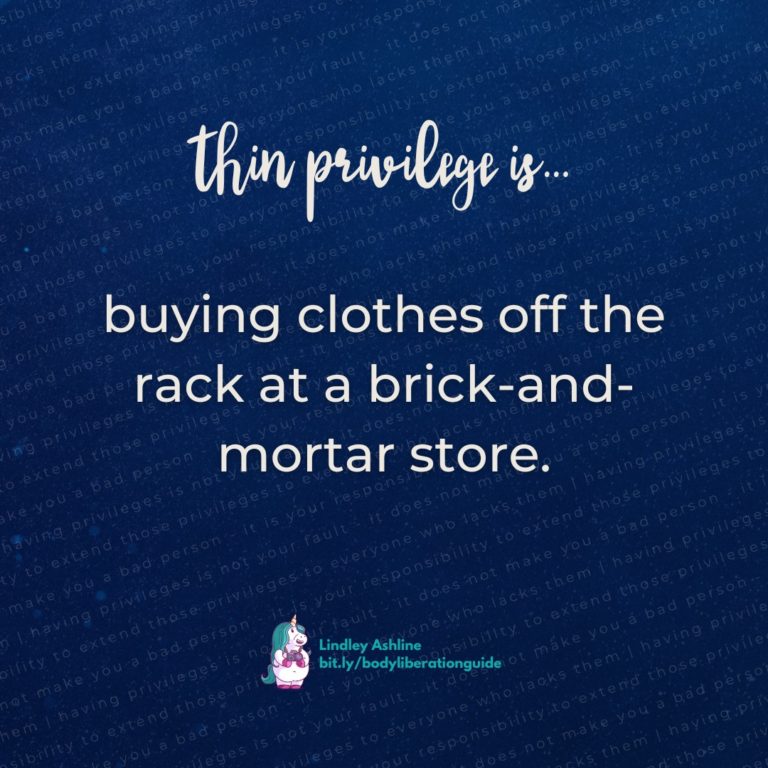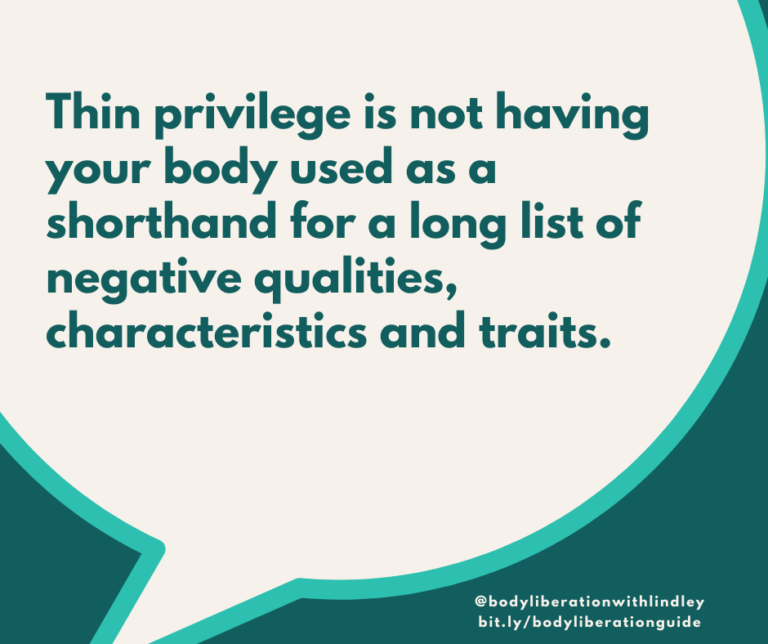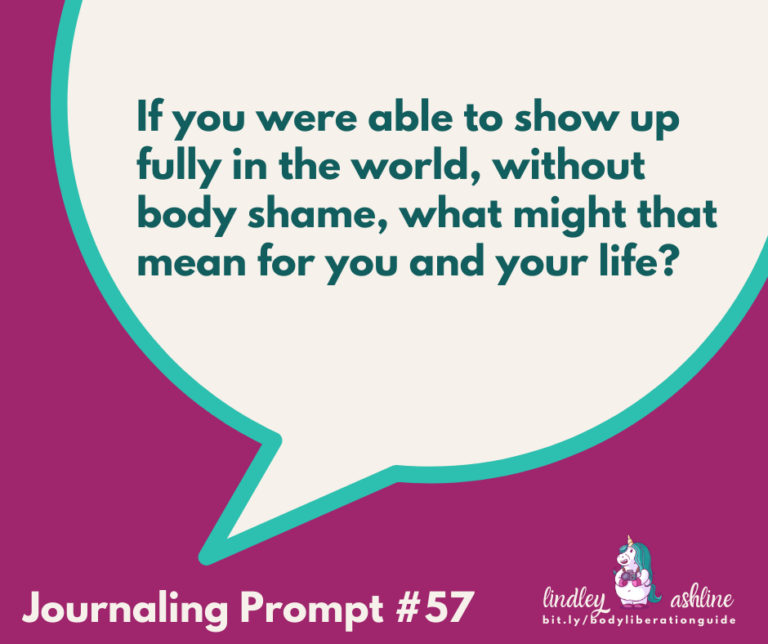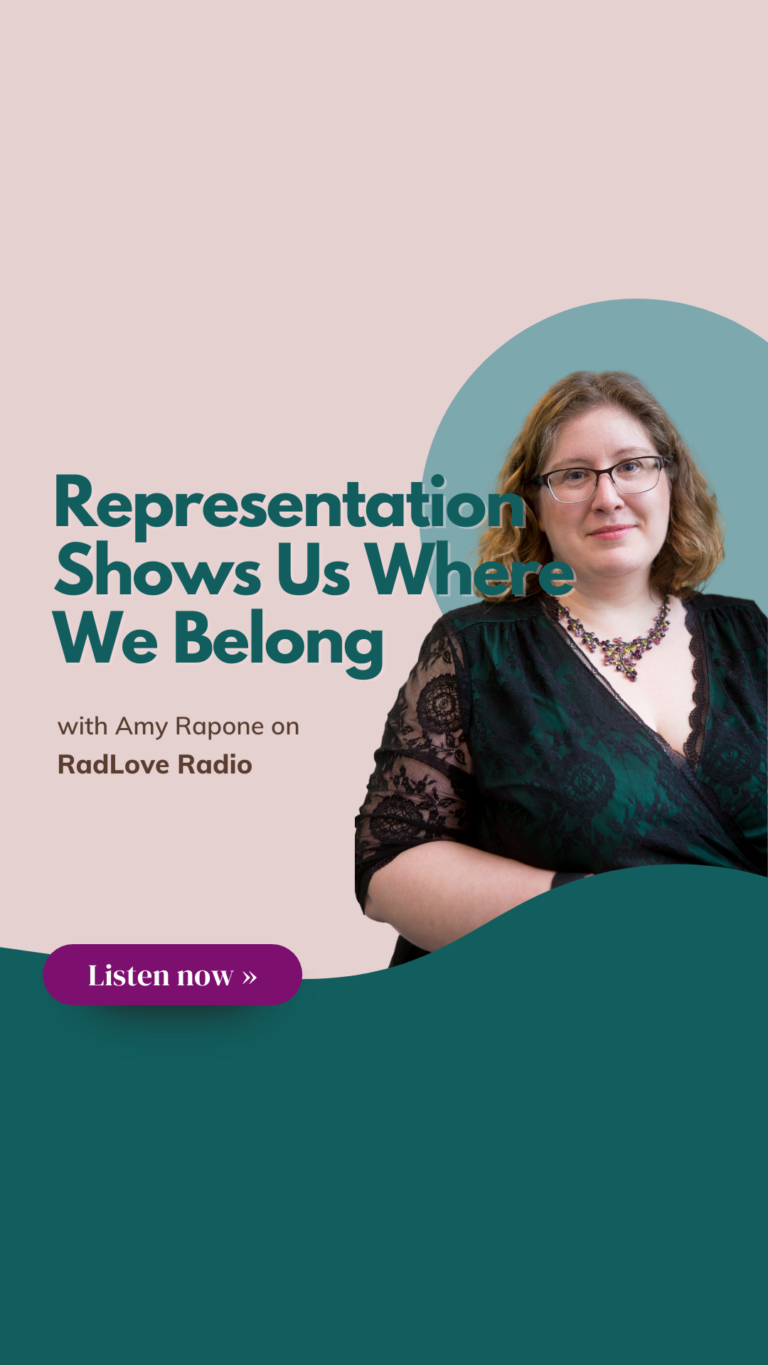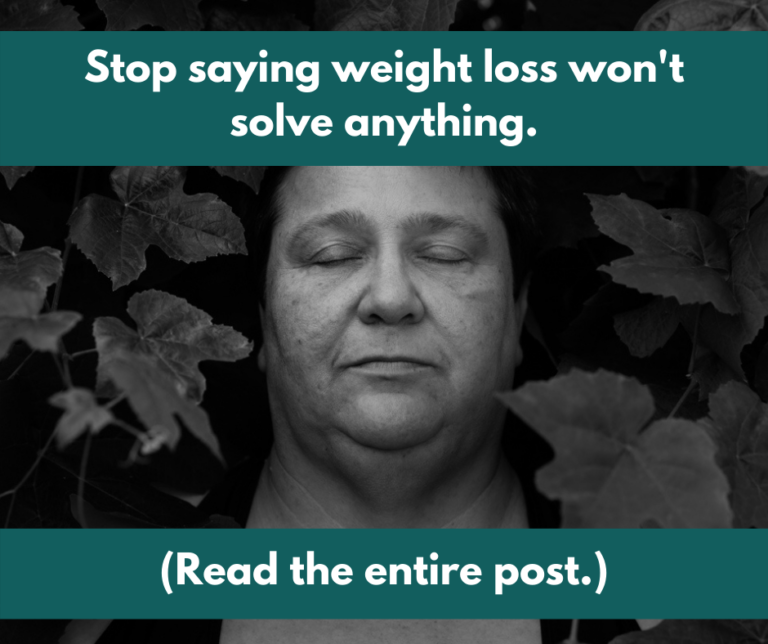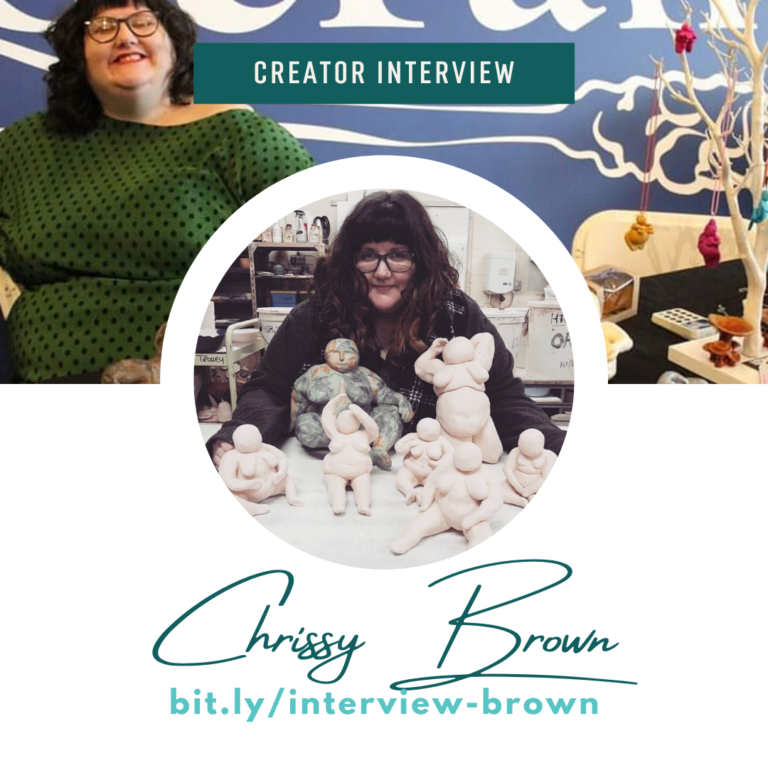Instant replay: Instagram Live – Kids, Body Image and Health at Every Size®
Today I’m asking body-positive and Health at Every Size®-aligned nanny and parent consultant Sarah @bodypositiveparenting all about her job, including:
🚸 What does a body-positive nanny do? What does #HAES have to do with it?
🚸 What should parents look for in a nanny who will help their kids grow up with a positive body image?
🚸 What Sarah wishes parents/caretakers knew about kids and body image
👉 Follow Sarah: @bodypositiveparenting
👉 Book her for parent consulting/education: sarahthunell.com
👉 Subscribe: sarahthunell.com
Episode Transcript
Lindley: Hey everybody, it’s Lindley. And this is my first ever Instagram live that I’m hosting, so this is a really good opportunity for me to practice some vulnerability. I have no idea what I’m doing and I am inviting my guest right now. So again, this is such a great opportunity to be vulnerable in what I’m doing. It’s hard to be vulnerable in business because you always feel like everybody’s watching you and you have to be perfect and polished at all times. But this is the first time that I’m doing this, this is the first time that Sarah is doing this, and so here, we’re going to figure this out together. So today, the reason that I’m doing Instagram live is that I really wanted for Sarah to be able to share her wisdom. And I’m going to take a second and pull up my notes so that I have my questions I was going to ask, and then I’m going to introduce Sarah. So I’m going to let Sarah tell you in her own words too why she’s here and what she does.
Sarah is a health at every size aligned and body positive nanny, which is so rare. Sarah was the first person who does this work that I had ever met. Sarah is local to me and we’ve gotten to hang out a few times. And full disclosure, Sarah is also a client of mine. And it’s so cool, as someone who doesn’t have kids – I have nieces and nephews that I love dearly but they are not local to me, and so I don’t get to see them very often. And so, I don’t have a lot of kids in my life on a consistent basis. And as someone who’s doing body liberation work, I get a lot of questions, you know, how do I talk to my kids about their bodies? How do I talk to them, like if somebody calls them fat at school, how do I acknowledge that that’s being used as an insult when we’re also trying to reclaim the word fat and all these things about parenting, and y’all, I have no idea.
I am the worse person to ask because I just don’t have any experience with this, but Sarah does. So Sarah is a nanny here in the Seattle area. She also does parent consulting, so you don’t have to be local to work with her, and we’re going to talk some about that too. But I asked her to come in today, so we can talk about some of these questions that parents have about raising kids with healthy body image. So Sarah, why don’t you tell us just a little intro, in addition to what I’ve said, what pronouns you use, anything that you would like us to know before we really get rolling?
New in the Body Love Shop
Sarah: Yeah. Thank you so much for inviting me today. I’m really excited to chat with you. I use she/her pronouns. I would describe myself as a crafty person, like artsy stuff, poetry and music. I have two cats you might see featured on my Instagram from time to time. And yeah, I’ve been nannying pretty much my whole career or doing different things in childcare. I love it and I find it so fulfilling.
Lindley: Yeah, and talking about talking about vulnerability and business, again today is such a great chance to practice that because one of the things that I want to ask Sarah is, you know, how did you get to be a nanny. And when we talk about these questions beforehand, I sort of put in parentheses, tell as much or as little of your personal story as you want. And again, it’s such a great chance to practice this concept of being vulnerable, but also protecting ourselves with what we share. I have no idea what Sarah was going to share here, so I’m really interested to see you, but, you know, just share as much as you’re comfortable with.
Sarah: Well, you know, some people marry the first person they date, sort of like that for me with childcare. I was doing high school online because I hated high school and I wanted to get some job experience, so childcare felt like something I could do. It wasn’t too scary sounding. So my dad went with me; I found a job on Craigslist and I didn’t want to get murdered. So my dad came with me to the interview and that was my first nanny job while I was in high school. Yeah, I worked with a two year old and a four year old. After they moved out of state, the mom wrote in a reference letter for me that I taught them how to play hide and seek, but it was my claim to fame at the time. So yeah, it’s been a long journey of growing in my practice of how I relate to children and learning how to care for myself while caring for others.
Lindley: Yeah, and being a nanny. There’s a certain level, I think, of socioeconomic level of people who are nannies as opposed to a daycare or some kind of out of the home childcare. But I think there’s some things in common as far as what people look for. So like, if I’m a parent who is looking for any kind of childcare; what might I be looking for? Because even within the realm of health care, which is a somewhat different field, there are so few people, so few providers who are truly body positive, or truly fat positive, or truly health at every size aligned. And when it comes to someone who’s taking care of our kids, it’s not just a matter of, you know, obviously you’re in charge of their life and safety at that moment and you’re in charge of their physical needs, but then also there’s a whole layer of what kind of messages are you giving them and instilling in them. So, what should parents be looking for as far as both overs and maybe a little more subtle things when they’re looking at childcare providers, whether as a nanny or a daycare or whatever, to be able to tell what kind of messages that those adults are going to be giving their kids about health and food and body image?
Sarah: Yeah. I think it’s hard enough to find childcare in general in our country, so finding also someone who matches all your ideals philosophically, it’s an unfortunately big ask for most people. But one thing that can help start those conversations is if you can find someone because maybe nanny is don’t understand all of the philosophy around Hayes and, you know, intuitive eating and these things that we’re getting excited about right now, but maybe they do know some things about different childcare philosophies. So you might be able to find a nanny that is really into respectful parenting styles, gentle, positive – there’s different words and can be interpreted different ways. But somebody who’s interested in not in like cramming what they know into the child’s brain, but is really interested in developing knowledge from within for the child and what they are trying to naturally grow toward because children have a natural drive to learn and grow. So, someone who sees that and appreciates that is going to be open to the conversation of like, “Hey, please, don’t give my kids directions about what to eat or how much when you serve them food. Or don’t prescribe them certain kinds of movement. They’re going to want to move on their own.” There’s nuances there, but you can have those conversations more easily if the person’s already interested in getting to know the child and what the child really needs and wants.
Lindley: So is it okay like to go in and say, here are the things I’m concerned about, I would like for you not to give my kids messages about food, I would like for you not to do this, or I would like for you to do this. Again, as someone who’s coming from entirely outside of this, I would imagine that that coming in and having those conversations and seeing how they react is a good strategy to see if they’re even open to it. I assume it’s not like you can really go to their website unless there’s somebody who’s really into it. Like, it’s not like you can really go their website or just find all this information about how they would handle these things. So is it okay to go in and ask these questions and set these expectations up front and expect to have a real conversation about that upfront?
Sarah: Yeah. I think you probably want to start with basic logistics, make sure it’s a good match with the pay rate and the hours and things like that, and maybe somewhere in the interview process or I often like to do a house tour before signing a contract. So, you can have these different opportunities along the way to have those conversations and say, this is something that’s really, really important to me and here’s why.
Lindley: Yeah, because it kind of sounds like it’s a boundary issue of setting boundaries on behalf of your kids, I guess.
Sarah: Yeah. Yeah. Then you need to feel comfortable with that for sure.
Lindley: Yeah. And I think even more so when it’s somebody who’s going to be in your home and spending more individual time than they might be getting with a particular adult at say a daycare.
Sarah: Yeah. And I have had parents that they might have their own ideas and philosophies about how they’re raising their kids, but they just want to know that I am going to keep their kids safe and then they don’t need to know much else. They’re just kind of like understand the children are really adaptable too; they can have caregivers with different priorities and expect different things from different adults. But yeah, if there’s something that’s really important to you, get on the same page, be a unit with that nanny. And that feels really good as a nanny too to not just be hired to follow directions, but really to be part of the thought work around why we’re doing what we’re doing. That’s really a nice way to honor how much your nanny probably cares about these kids too.
Lindley: Yeah, that makes sense. So thinking about from the nanny side; when you’re looking for clients, I know because I know you a little bit personally that you do have some things that you look for in parents. And I suspect some of it is that being invested in working together with a nanny. But like if I’m a parent who’s looking to be a good match for a nanny who is really invested in my kids, positive body image, healthy body image, so what can I do to be like an attractive person to work with as a parent? Like, what do you look for when you’re looking for parents to work with as a nanny?
Sarah: Yeah. Well, first I looked for just clarity and how the job is communicated. Do they have a good sense of what the day is going to be like for me? That usually tells me a lot about like, they thought about what it means to be an employer. And then after that, if there’s some way that they talk about their child that shows me that they’re seeing that inner world and are interested in it, that’ll usually usually get green flag to go ahead for me. And then after that, I do have some ways I kind of keep myself safe or maybe go forward more depending on how much our philosophy is aligned. I might limit the scope of the work a little bit more, focus on what we do have in common. And then if we have a lot in common, the scope can get a little bit bigger.
Lindley: So I want to go back to this sort of parenting and discipline philosophies, because I know you’ve done a lot of thought work around that. But first, we have a ton of people who’ve joined since we started, so I want to send that to you and just do a very quick introduction. This is Sarah Thunel. Am I pronouncing your last name correctly? I don’t think I’ve ever asked.
Sarah: Yeah, maybe not if we were in Sweden, but…
Lindley: Who is a body positive, fat, positive and health at every size aligned nanny, and she is in the Seattle area and we are talking about raising kids with positive body image, healthy body image and what to look for in a childcare providers who are going to help you in your efforts to give your kids a positive body image and to feed them and play with them and interact with them that are respectful of kids themselves and their boundaries. So, that’s what we’re talking about today. So for everybody who’s come in in the last few minutes, welcome.
Let’s talk about these philosophies. Again as a non-parent I have no idea, but I’m betting there are a lot of parents who don’t know what these are either. So talk to me about… I know that positive discipline is one of these because I’ve seen you talk about it. But tell me a little bit about what these philosophies or frameworks are in a very general sense. Like, what does that even mean? And I’m a parent interested in these, what should I be do?
Sarah: Well, one of the paradoxes that I live in is that you don’t actually need to know any of this stuff. You know, most of the time, parents have gotten their wisdom from other parents, from grandparents, from community. So, I think it’s sort of a substitute for that sometimes that will have like an expert that we follow and then we feel like we’re getting that community, but really it can come from a lot of different places. So for me, what’s really most important is landing on this piece of how can I show up for myself and this other person that’s me, the child, at the same time. So, recognizing that they are a complete human being already that has opinions and interests and the drive to do certain things, just like I do, and needs to be met. So, that’s kind of what it boils down to for me. But yeah, I could talk a little bit more about like I could define positive discipline, if that would be helpful.
Lindley: Yeah, give us a little of taste of what one of these frameworks looks like.
New at Body Liberation Stock
Sarah: Yeah, positive discipline is a social, emotional learning platform. So it’s a sort of full play experiential learning for parents to practice the tools of helping children regulate if they have a really, really big emotions working on problem solving and connecting, apologizing and making repairs, all these different social skills. And I find that it works best for school-aged kids and teens. There is some that applies to the really little ones, but I also really like just respectful parenting like rye and like Montessori and all those different ones; get as little from that and a little from that put towards the littles too.
Lindley: So I feel like this is a really good time to jump to briefly – you know about all these frameworks and you’re pulling what you think is the best parts of all these different things. And so if I’m a parent, how can we learn this from you? Obviously, I can follow your Instagram @bodypositiveparenting, but beyond that, I know that you do parent education and parent consulting is that only for local Seattle people? Is that anywhere on Zoom? You know, is that more of a pick your brain or is it more of a structured, like a classroom? Tell me about how that works.
Sarah: Yeah, so I do in-home consulting with the parents that I nanny with where we might do a weekly meeting or whatever kind of communication works for our unit. But I also offer virtual coaching, so you can sign up for that through my website. I think right now I have two weekdays open and a little bit on the weekend day, so there’s some slots available. And I have an option of going through the positive discipline book together that would be more structured. I would bring in some of those role-play activities. So if you’re someone who likes more structure, that might be a way to go. I’m also open to just… I have a coaching one that’s open and we can just chat about similar to like I do with my nanny families, like what’s going on week? What are you working on, or are more long-term stuff like, you know, what are you concerned about for the future or how can I support you? And I’m really open to learning from parents, I get so much. I’ve learned a lot of what I know from parents much more than I’ve learned from books and to workshops and certifications. So yeah, I’m always open to trying to figure out a reciprocal dynamic. I’m really excited to do that.
Lindley: Yeah. And I know from what you’ve said in the past that there seems to be – I assume that people can just hire you, ask you specific questions, spend an hour on Zoom and everybody moves on with their lives. But I know from what you’ve said previously, that there’s a lot of value in having that consistent coaching and consistent interaction with you, and that’s why you’ve got those, those slots because it’s like regular appointments, right?
Sarah: Yeah. This is just such a good example of how everything’s connected. Like it’s just a lot of the themes that have been coming up as we’re talking. Yeah, it’s the same with coaching. Like you are an individual with individual beads, so that’s why I do have that flexibility. Do you have something you are going to want to talk about one time and then move on or do you want like ongoing support and coaching, someone just to cheer you on?
Lindley: Great. So, to change the topic a little bit; I saw this the other day on Facebook and I thought it was genius, but again, not apparent, so give me a reality check on this. What do you think about using the phrase, “your grownups” with kids instead of “your parents”? Lots of different family setups because, you know, so many kids are in blended families or maybe it’s step-parents, or maybe they live with a relative who’s not direct biological parent, whatever. I thought it was a really cool way to sort of respect that there are lots of different situations while still being clear about the people who are in charge of you.
Sarah: And it immediately made me think of preschool pickup, that I’ve had to do preschool pickup as a nanny, and I often feel very othered. It was like a lot of parents there. And then there’ll be talked to as a group of parents. And then especially if the child kind of looks like me, it’s an awkward thing of like, do I take the time to say, like, “I not her mom,” you know. Do I have let it go? And then that’s kind of weird. So from a personal perspective, I do appreciate when someone says grownups or adults instead of mom or parents. And yeah, for what you said too, it could be grandma, it could be auntie, it could be family friend, you never know.
Lindley: Yeah, or adoptive parents or whoever. Yeah, because there’s so many different situations and they’re all… I think I was thinking of it as being a really cool way to be respectful of kids and their living situations. But I think you’re right on point to that, it’s also a way to be respectful of other grownups who are responsible for kids in one way or another. And this is where I tell the story about how my brother is much, much younger than I am, so I was a teenager when he was born. And I would take him after I got my driver’s license because this was back in the day when you just got a driver’s license at 16. And so, he was quite young at the time and I would take it with me to Walmart or grocery shopping or whatever, you know, running errands because you know, helping out. And this was in North Carolina in the nineties, and I would get the most outraged reactions because people assumed that was his mom. And as a teenager, I didn’t know how to handle that, but there were a lot of very awkward situations where I would end up in my extremely awkward teenage way; we’d be the going through like the checkout at Walmart and I’d be going, “Isn’t my little brother cute?” Like, I didn’t know how to deal with it. Now I would just, you know, whatever, but I didn’t really know how to deal with the outrage of all these random little ladies at Walmart thinking I was a teen mom.
Sarah: So now what I’m curious about though is how you as a teenager would have felt about being called an adult.
Lindley: You know, I desperately wanted to be an adult, but I was never interested in having kids. So, there was both the layer of, “Oh, no, not actually teen mom.” And I want to know too that obviously there’s nothing morally wrong with being a teenage parents. But for me at that time, there was a lot of, you know, culturally, there was a lot of shame around that and a lot of disapproval, so I was reacting to that at that time. Currently is not shaming you, if you had a kid as a teenager, you know, you do you, none of my business. But I think as an autistic teenager, not only was I just not really able to deal with that dynamic, except in really awkward ways, but I wasn’t particularly interested in having kids. So yeah, I wanted to be an adult, but I didn’t want to be a parent, so it was no.
Sarah: Assumptions can be really confronting. That’s a good point.
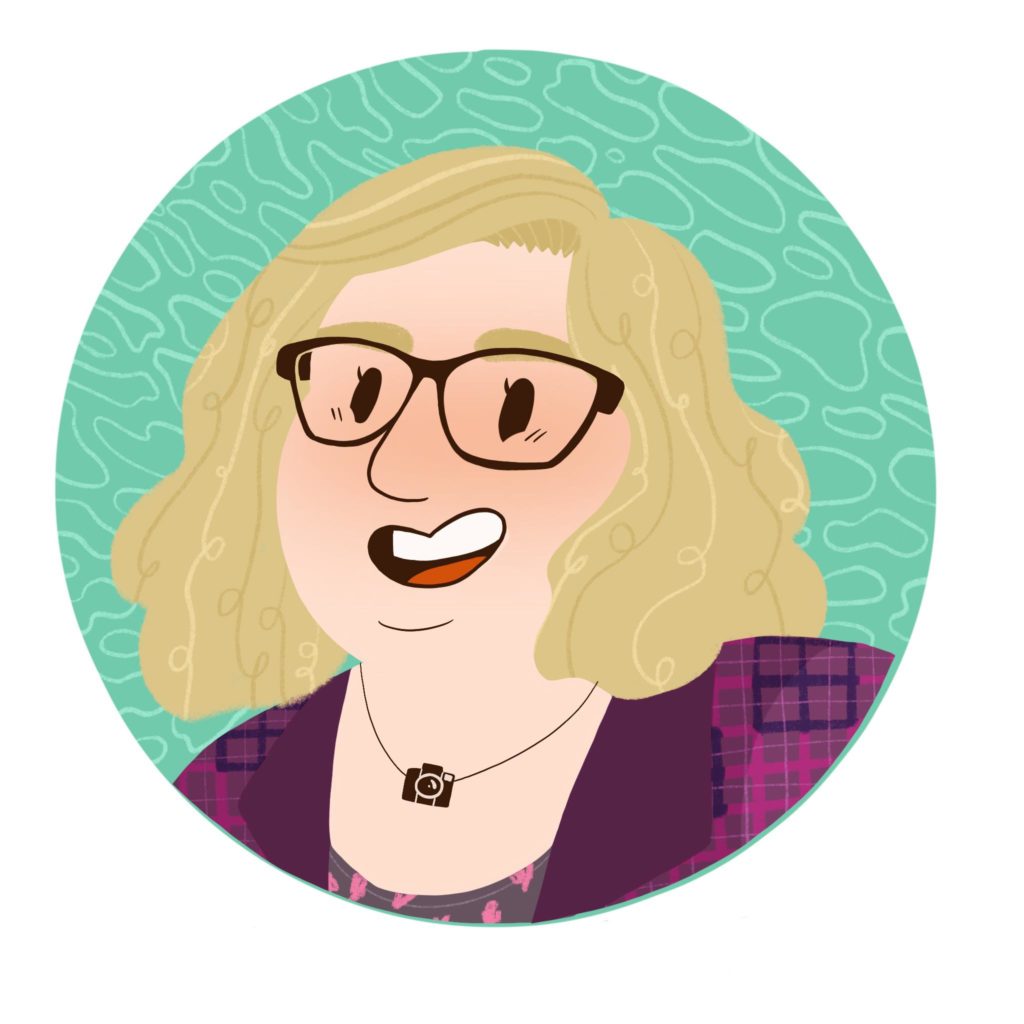
Every Monday, I send out my Body Liberation Guide, a thoughtful email jam-packed with resources on body liberation, weight stigma, body image and more. And it’s free. Let’s change the world together. Subscribe »
Lindley: Yeah. And to bring this back to you, to childcare, you know, just sort of – when we are respectful of other people as parents and caretakers in whatever format that looks like, we are also being respectful of their kids because we’re treating their parents appropriately. And treating parents appropriately helps them be better parents, both because they’re able to model healthy relationships with other adults. And also because if they are less stressed because they haven’t had to deal with me being a jerk at them, then they get better because they have more [unclear24:00]. But what’s one thing that you wish parents knew about kids and body image, because we are all steeped in? There’s so many messages around kids and bodies.
Sarah: Yeah. I think my overarching thing, it’s probably going to be a pretty easy to say to your audience here, your followers and subscribers to your newsletter, but it’s that being fat is okay. Fatness is not a disease. There’s nothing that it says about our morality or character, and then applying that to raising kids, it’s just so much to navigate with living in a world that doesn’t hold that for us. So letting it be okay that things unfold, that it takes a while, that it’s not a weekend project to figure out all the right things to say at all the right times, it’s going to be a process of healing ourselves, developing these resiliency tools to model. And yeah, just letting it be a process because it’s not easy.
Lindley: Yeah. Because as parents, you’re not only untangling your own body image stuff, but you’re trying to instill good body image in your kids, and also participants from a world that profits from them having bad body image. And especially if those kids are fat for, you know [unclear25:35] fat kids. What’s one thing maybe that the parents could do right now, like some kind of small day-to-day change in how they interact with their kids around body image or food or whatever might be it? Like one easy change they could start making right now?
Sarah: Let them eat Halloween candy.
Lindley: Oh yeah, yeah. As we record this it’s October 25th, so that is extremely relevant. Tell more about this.
Sarah: Oh gosh. It’s a time where there’s just so many different possible ways to food shame and I guess it could be rephrased as an opportunity to model the opposite. So yeah, there’s a lot of different strategies for how to maybe introduce a little bit of candy before Halloween starts. I’m trying to be careful too because I’m not a dietician or anything like that and I don’t want to give too much food advice, but I know in my practices, I try to practice food neutrality. So candy is morally equivalent to broccoli, and that doesn’t mean that I serve candy for every meal, but you know, I serve it still.
Lindley: Yeah. And this is a great example of having boundaries around your professional scope too. Like, you know, here’s my general philosophy, but also, you know, not healthcare provider, not my jam. Before we start winding down, we know, and I’m going to give a really quick introduction to this for folks who aren’t familiar that there is a troupe of the good fatty. And we’ve all seen it, most of us have been it and some of us are it right now, and that is also okay. Where the good fatty is a fat person or a person who thinks they are fat, and may or may not actually be fat like on the actual scale of human body sizes. Primarily, folks who are actually fat, who are trying as hard as they can to meet the standards that have been imposed on them by other people because it gets them better treatment.
[Unclear28:17] is a valid survival strategy. Again, I have totally been here. I’m not judging you. I promise. But it has become its own standard that has also imposed on this role of being the good fatty. So in the real world what that looks like is a fat person who is dieting really loudly, a person who exercises performatively, someone who loudly enforces beauty standards on others. Someone who says loudly at the buffet, are you really going to eat a second serving of that? Because visibly attempting to meet these cultural standards on body size and food, people treat us better when we’re trying, when we’re seem to be trying. The people who are on the biggest loser TV show which is it’s own set of abuse in itself – don’t even get me started, but they are treated better because they are trying to lose weight than they would be if they were just fat and okay with that. And so, this is a whole trope, and I don’t want to get any farther into it as far as it is concerned. But there’s also this caretaker aspect of the good fatty trope or a mother hen aspect where we often assume,; and even though I’m not a parent people often assume I am because I’m a middle-aged lady who’s fat. I am a nice white fat lady, and so people assume. People at my doctor’s offices will ask me about my kids, but they never existed. And so there’s a real aspect of this good fatty trope that’s also this mother hen aspect. And Sarah brought this up beforehand and I really want to hear what you think about this. And by the way, Sarah is that body positive parenting you’re on Instagram for the folks who’ve come in later, so be sure to follow her.
Sarah: Yeah, I definitely think I benefit from the mother hen tropes sometimes. That might be why as a teenager, I felt comfortable with my very first job being at any job because I could go into that interview in my larger body and maybe feel like that’s where I belong. And it’s tricky to transition from that to be like, yeah, but I really love it, but few things can be true. And like you said earlier, there’s no shame in it; we all are just existing in the world. And I think the part that’s interesting about it is that it’s a validation that comes from contributing to productivity. So, it’s slightly more okay that I’m fat because I am raising future workers. So creepy.
Lindley: No, I mean, but it’s true. I think one of the ways in which it’s similar to, not the same, but similar to the concept of benevolent racism or benevolent sexism in that it’s okay that we are what we are because we are contributing a specific thing. So I think, you know, it’s more okay to be fat if you’re also raising kids, because then your fatness is nurturing. It is for the service of other people.
Sarah: Yeah, exactly.
Sarah: Because you didn’t take care of yourself because you were putting all of that effort into nurturing.
Sarah: Right. The way that I look back on a day as like successful, I don’t know if that’s the word I want to use, but it’s if I took care of the child and myself. If I had a day where I like really, really hardcore showed up for this kid, and then I come home and I’m just burnt out, I’m exhausted, I’m dehydrated and hungry, it’s like all the things; I feel like that’s… yeah, my job as a caregiver is to take care of all the people there, including myself.
Lindley: Oh yeah. I think that’s really important too. And bringing that into the sort of good fatty or mother hen trope; I think we are encouraged to drain ourselves in service of others. And so, caretaking of ourselves is sort of directly in contradiction to that whole trope, both parts of it. Because if I’m taking care of myself and nourishing myself appropriately and taking breaks and so on, or if I’m just being unapologetically fat; I am not dieting in the service of being easier on the eyes to others. I’m being of service to myself too, which is not acceptable by cultural standards, especially if we are fat, because we’re expected to just drain ourselves completely because then at least we can be of service to others.
Sarah: Yeah. Caring for children takes a lot of energy, we need to feed ourselves. That’s all I want to say about that.
Lindley: Yeah. And I want to be very careful on this because it’s not my story to tell, and it comes back to boundaries like I’ve seen earlier, and it comes back to the way that we talk about ourselves, and our own needs, and our own bodies and our inner stories, and our physical needs on the internet does affect how we’re seeing professionally. And again, I don’t want to go too far into this, but if you are a parent or a caretaker who has a chronic illness or who has you know, maybe you’re poor, maybe you’re working four jobs, maybe you are limited by your body, by your body’s abilities. How might – in addition to doing the things you need for yourself and setting boundaries around that, because if you have a chronic illness or you have a physical disability, you may just be limited your inner ability to run after your kids all day. And we are receiving so many messages about our worth and the expectations that are placed on us. I say us as parents, again, not a parent, but people who are care-taking in one respect or another, whether you are a nanny or you’re a daycare worker, or you are a primary caretaker of a kid or a part-time caretaker who is receiving a lot of negative messages about their body and its capabilities, how can we avoid passing that onto kids when we are also physically limited in our ability to constantly be physically interacted with them?
Sarah: Yeah, this is what I love because I live with chronic pain, chronic illness, and I do this very physically demanding job of caring for children. And I found that they are so receptive to seeing you be real and meet your needs. And I have so much respect for things like the Play First Community, where I’ve learned about concepts like if a child is at a 10 of happiness, like they’re having a really great moment by themselves, twirling on the grass; you don’t have to go in and grab their hands and swing them around. I can actually credit – I think that was from America’s Worst Mom. I can get her name, but this idea that a lot of times we’re doing more than needs to be done because of that expectation that we’re so productive, we’re so involved, and that children are these empty vessels that need to be stuffed full of our superior wisdom. So if we can take a step back from that and look at like both of us being in this room, what do we need; a lot of times it’s a lot simpler than we think it is.
Lindley: Well, I think coming from outside this, there’s also this perception that I’ve picked up that it’s always morally negative. It’s always negative to, and I’m going to use the words that I see people using on the internet. This is not Lindley’s interpretation, but parking your kids in front of a TV, parking them in front of an iPad; how if you have… I mean, we all have physical limitations. There is not a parent on the planet who can be physically swing their kids around 24/7, that’s exhausting, kids are heavy. But this isn’t for folks who have disabilities and chronic illnesses and limitations, but really for everybody. What kind of messages can we give ourselves about meeting our needs in addition to our kids’ needs without feeling guilty that, “Oh, no, they’re watching an iPad for five minutes.”
Sarah: Yeah. There’s because you have to, is that like enough? If you don’t, then the consequences might be that I think follow like spoon theory, might be borrowing spoons from the next day, she’d be able to do that. And you can think about the connection that’s happening around that five minutes on the iPad. Did you have a meal together recently and really like do laugh about something? All these different ways to connect and that’s throughout the day, it’s not in that five minutes.
Lindley: Yeah, that makes sense. Yeah. And of course, in addition to spoon theory, which I’ll put a link to that in the description when I post this with the subtitles later. In addition to spoon theory, it’s also the oxygen mask thing. If you’re going to show up for your kids, you got to put your own oxygen mask on first. I think it says really easy to feel guilty about that.
Sarah: Yeah. And if you are someone who lives with chronic illness or chronic pain, and doesn’t want to do screen time, I have tools for that too, but it’s okay to do screen time.
New in the Body Love Shop
Lindley: So, this has been an amazing conversation, but let’s go ahead and start wrapping up. So you are in the Seattle area, you are a nanny who is available I believe part time – are you currently available? And I realized for anyone who’s watching the recording, this is only going to be relevant for a hot second, so you want to check out Sarahthunel.com, which I’ll link to, to see current availability. But at the moment, are you available for in-person nanny services? What’s the deal on that?
Sarah: I am pretty good about updating my nanny availability on my website. I’m not currently available for nannying, but I am available starting in January, right at the beginning of January. So I’ll be looking for part-time hours up to maybe 24. So, anyone in the Seattle area who’s looking for a nanny around then, please send me a message. And then also be available for consulting now and then.
Lindley: Yeah. Yeah. So anybody who is not in, you know, in the city of Seattle itself, who can’t afford a nanny who has other childcare arrangements, who doesn’t have outside of childcare and it’s just you, that’s totally fine. I think everybody can benefit from what the knowledge and the wisdom that she has available. I learned things from her all the time and I’m not even a parent that I’m excited to try all my nieces and nephews the next time I see them, learning things about how to work with kids and body image. But yeah, so where can people find you both to follow you online, to hire you, to see more information about your consulting which is both for folks who joined later, this is both like one-time consulting. Like, I have a burning question, but also on ongoing a little bit more of a parent coaching role where you’re meeting regularly and saying, here’s what happened this week? How do I address this? And so, it’s both kinds of consulting and education. Tell us where we can get more of that.
Sarah: Yeah. If you go to my website, www.sarahthunel.com and you go to the services tab, it’ll link you to my square page where you can register for a free 30 minute hello consult. We’ll just talk about what you’re looking for and see if we’re a good match and go from there.
Lindley: Awesome. Yeah, and I’ll link to all this too. In addition to this live that you’re watching right now, thank you so much to the folks who joined us live. It was really cool to see you coming in. I really appreciate that. And I’ll also be posting this in stories and in my feed too, I think. It was a little bit of a mystery right now with how they’re changing video format, but I will post this everywhere in a version with some titles so that you can both see anything that you missed earlier and also see it with the subtitles. And eventually this will go up on the Body Liberation photos blog as well with a full transcript for accessibility. But yeah, I’ll put all of Sarah’s links there. Thank you so much for joining us, Sarah, it’s been fascinating to get to listen to you talk more about this, and then I’m so grateful for your time.
Sarah: Oh, thank you so much for having me. This was really fun. I’m so excited to start my week off here.
Lindley: Awesome. Yeah, what a great way to start our week here. All right, I want to talk to you later specifically, Sarah. Thank you everybody else for joining us and we’ll see you soon.

Every Monday, I send out my Body Liberation Guide, a thoughtful email jam-packed with resources on body liberation, weight stigma, body image and more. And it’s free. Let’s change the world together. Subscribe »
Hi there! I'm Lindley. I create artwork that celebrates the unique beauty of bodies that fall outside conventional "beauty" standards at Body Liberation Photography. I'm also the creator of Body Liberation Stock and the Body Love Shop, a curated central resource for body-friendly artwork and products. Find all my work here at bodyliberationphotos.com.

